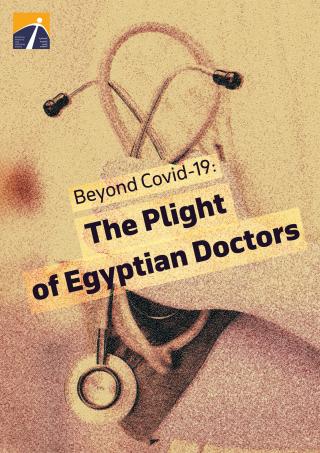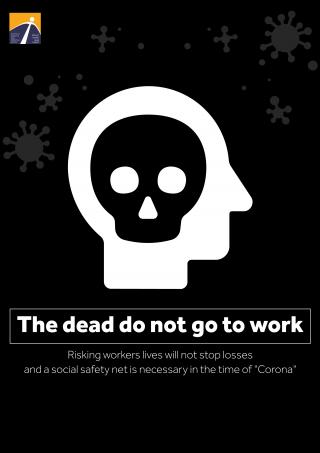Tags: coronavirus
The Egyptian Initiative for Personal Rights (EIPR) issued a policy paper entitled “Before and after Covid… the plight of Egyptian doctors”, which reviews the problems faced by physicians in particular and medical teams in general in Egypt, and pro
Lack of retention of Egyptian doctors is a crucial issue at stake. Investigating the roots of the problem necessitates an extensive situation analysis of doctors’ working environment and conditions, which touches upon other Health System Building Blocks, like Health Financing, Governance and Leadership, Access to Medicines and Service Delivery. Defects in mentioned building blocks mean less incentives for doctors retention in the public sector and, arguably, the country.
EIPR stresses the importance of equitable distribution of vaccines among citizens, and commitment to full transparency in clarifying the basis on which the vaccine will be distributed, because justice and transparency are the way to gain citizens' confidence in responding to the state's directives during the vaccination process of the Covid-19 vaccine.
And because monitoring clinical trial procedures in general, and this important experiment in particular, is part of the role of civil society, a member of the EIPR team volunteered and joined this clinical trial. He followed the procedures and was registered among the trial participants after completing and fulfilling the conditions for participation.
EIPR will be advocating and supporting the adoption of all global policies that would ensure equitable access to medications, technologies and information for all, during this pandemic and beyond as part of its continuous quest to ensure the insurance of the Right to Health for all.
The following points attempt to draw a picture of the labor market in Egypt, and point out its key shortcomings and imbalances, which are exacerbated with the crisis of Covid-19. The crisis, at the same time, opens a door for discussion and redress for some of these imbalances. The Egyptian law allows any employer to fire his employees, without any compensation or pension. When a worker gets sick, and he is the provider for his family, he often does not have health insurance that guarantees his treatment.
In the year of the pandemic, as the World Health Organization called it last March, when millions lose their jobs and their basic living, the government chooses to cut spending on food subsidies. Despite the exhaustion of the health system, headed by doctors and nurses in government hospitals, the government chose to complete its neglect of the constitutional minimum spending on health.
Once again the prison administration failed to transfer Patrick Zaki citing a force majeure event. Patrick was scheduled for a detention renewal session on Sunday June 28 that was meant to take place for the first time before a Criminal Court panel from a counter-terrorism circuit, which sits at the Tora Subofficers Training Institute. But once again we saw a repeat of what has become the norm over the last three months, following the April 28 decision by the head of the Cairo Appellate Court to resume detention renewal sessions without the presence of defendants in criminal cases
EIPR calls on the Egyptian authorities not to exempt detention facilities and prisons from measures taken to reduce crowding and limit the spread of the virus, including police vehicles used to transfer people arrested for violating curfew and closure measures. When enforcing these legal measures, the authorities should always consider their primary objective—protecting lives and minimizing gatherings and density.





